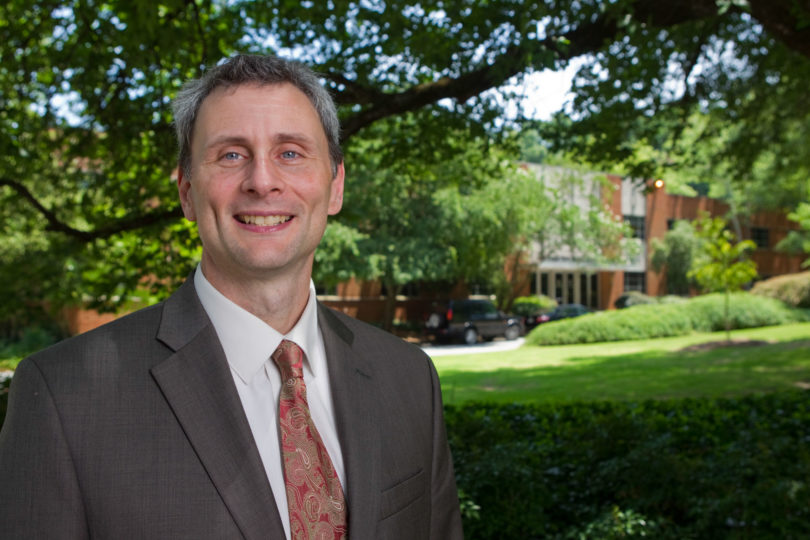During the interview process that eventually led to Don Leo becoming the first permanent dean of the UGA College of Engineering, Leo said he was inspired by the faculty’s vision of a “college without boundaries.”
That vision dates back to when the college was being proposed to the Board of Regents of the University System of Georgia as an enabler for interdisciplinary study.
“What’s compelling to me is that it allows not only for that interdisciplinary work within the college through traditional engineering disciplines, but also with outside entities, whether that’s another college on campus or a corporation,” said Leo, who took over as dean July 1, succeeding founding dean Dale Threadgill.
Leo expects great things from the college.
“It’s going to come from the quality of our students,” he said.
As dean, Leo said his goals are to help the College of Engineering further realize its interdisciplinary vision while establishing a strong reputation in instruction, research and outreach.
Leo previously served as associate dean at Virginia Tech’s College of Engineering. He also was vice president of the National Capital Region Operations of Virginia Tech, a program that integrates and coordinates Virginia Tech research, outreach and economic development activities in the greater Washington, D.C., area.
Leo was drawn to UGA in part because of the challenge of helping lead a new college. The College of Engineering was established July 1, 2012.
“There are not many times in a career when you get to grow a new engineering college at a university that already has significant strengths such as the University of Georgia,” he said.
The first step in building up the nascent college is working on its foundation-the academic reputation of the program.
“Our goal is to give students an education that reflects that concept of a college without boundaries so they’ll graduate from our engineering program being strong in their core discipline-whether it’s mechanical, civil or agricultural-but also understanding the other disciplines,” he said.
That multidisciplinary training, according to Leo, will make graduates more valuable job candidates.
Leo also believes that engineering faculty should be creative inside the classroom-especially in integrating technology into assignments.
“I’d like to see us have a conversation about being innovative in the way we are providing education, particularly to our undergraduate students,” he said.
In terms of research, Leo said there already is exciting work by faculty in areas of agricultural, mechanical and civil engineering. He mentioned research going into making cost-effective fuel pellets. He also talked about assistant professor Brock Woodson’s work on offshore sensors to monitor environmental factors in the ocean and assistant professor Jenna Jambeck’s research in “smart” recycling containers that record how often public recycling bins are used.
He expects the college’s faculty to continue to lead the way in discovery and innovation.
“I’m a firm believer in the bottom-up notion that faculty have to pursue their passion,” he said.
For his part, Leo said the dean’s office will play a supporting research role in helping coordinate partnerships on and off campus.
As the college seeks additional opportunities for collaboration, Leo’s background in outreach-particularly regarding economic development projects-could have a big impact on the College of Engineering’s future.
The dean is beginning to look for partners in state government and businesses to promote economic development in Georgia through College of Engineering projects.
“When you bring those entities together, you can work on large programs that impact not only the local area, but the state and the region,” he said.
On campus, the dean and the faculty of the College of Engineering are sending out an open invitation for partnership in education, research and outreach.
“We now have a new College of Engineering,” Leo said. “I would like the entire university to look at us as an opportunity to build bridges and develop new programs campus-wide.”








